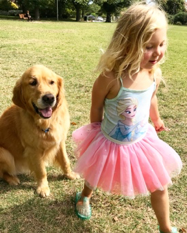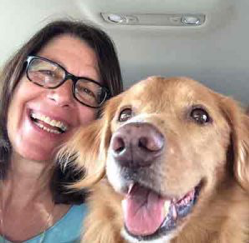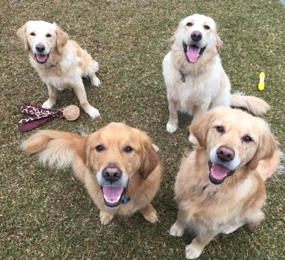A Shift in thinking…
Let’s Be Empowered by Positive Reinforcement Training
By Mel Ritterman
Positive Reinforcement is so empowering IF you understand it. Understanding it is the hard part. Seeing how it works and the results that come from it are what makes it so empowering. After completing the most incredible course with Professor Dr Susan Friedman called “Living and Learning with animals – the science and technology of behaviour change” I have been absolutely transformed in my way of thinking and overall training approach. I have been so empowered and absorbed in Positive Reinforcement training and I want you guys to be too!

We can be empowered by positive reinforcement if we understand a dogs motivation better. We need to realise that the dog isn’t doing behaviour x to piss us off or to dominate us. The dog is behaving this way as a result of the consequence. So we need to work out what is happening in the environment that is reinforcing this behaviour to help modify it.
It’s amazing to think how many people believe that you need to use force or punishment to stop a dog’s unwanted behaviour. I am not ashamed to admit that I used to be one of them. But let me tell you that there are many well-validated teaching strategies that have resulted from the science of behaviour and one of the most significant contributions is the evidence that everything that needs to be learned can be taught without the use of physical force or coercion.
Wouldn’t you know it, the science around behaviour says that using positive reinforcement methods work better. It teaches the animal what you want it to do. It pays them with rewards for doing the correct behaviour. Positive reinforcement is not manipulation, and reinforcers are not bribing. Positive reinforcement is the natural process by which behaviour is maintained or increased by consequences.
In Applied Behaviour Analysis (ABA), behaviour is defined as what an animal does under certain conditions that can be observed.
Think about this - behaviours that produce desired outcomes are repeated; behaviours that produce aversive consequences are modified or suppressed. So the best prediction of future behaviour is past consequences.
For example, the dog who came back to its owner when called in the dog park and was put straight back on the lead, is less likely to come back when called next time compared to the dog who was given a treat when it came back to its owner after being called. If a behaviour continues to be repeated, something in the environment has reinforced it the last time it was displayed. Punishment doesn’t teach your dog what to do instead of the problem behaviour. It’s quite simple if you think about it like that, don’t you think?

Positive reinforcement training, which rewards and motivates a dog for good behaviour, allows you to foster a relationship with your dog based on mutual trust and respect instead of fear and intimidation. The most effective teachers and dog owners are those who can influence behaviour in their dogs without the use of force and work through any problems in a humane manner. Dogs that are taught using positive reinforcement methods are more tolerant, self-controlled and behave much more predictably in different situations.

I just love this shift in thinking and one by one we need to start spreading the word. This change in thinking applies to all living beings, so I really try to use it in my parenting techniques too. How cool is it to think that science has proven that the best way we can teach our dogs (and our kids for those who are parents) is by using rewards, lots of them? Some of you might be reading this thinking I’m crazy. I’m going to have a dog who’s overweight on my hands, I’m going to have a dog who is dependent on food. But think about it, would you want to work for nothing? I’m sure your answer is no. Well this is the same for your dog.
We just need to change our way of thinking. We need to make treats something we keep at the front door with the lead and we take on every walk with us and every outing our dog comes on. Offer more reinforcement for the right behaviour than the wrong behaviour and I’m telling you, your dog will make the right choice more often. (Of course in saying this, you must adjust your dog’s meal size accordingly to keep them at a good and healthy weight.)

Please remember that life is full of choices. I am not here to tell you what to do. We all have our own views and opinions. But just remember that this is the science of behaviour. The behaviours that produce the strongest reinforcers are the behaviours our dogs will do more. As a part of this incredible Dogshare community, let’s all make a deal to try and embrace this way of thinking, at least to give it a go. Embrace the science and start to feel empowered by positive reinforcement. Let’s all decrease problems without resorting to punishment!
Mel Ritterman is a qualified dog trainer and mum-of-three. You can find more information about Mel on her website Cooper and Kids, or follow her on Instagram or Facebook. If you have a question for Mel feel free to email her at mel@cooperandkids.com.
Disclaimer: Dogshare and Mel Ritterman will not be liable for anything that happens to you or your dog by following our advice and tips. If you have real concerns or worries about your dog, please seek out a professional vet or behaviourist to come and assess the situation.